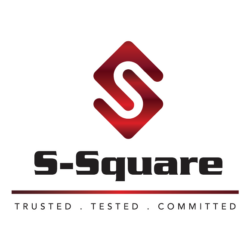
Technology is rapidly advancing and changing the way that government bodies operate. In 2023, there are several trends that are shaping the way that government bodies are using technology to improve their operations and better serve citizens.
Artificial Intelligence: Artificial intelligence is being used by government bodies to improve efficiency and accuracy in areas such as data analysis, decision-making, and customer service. AI-powered chatbots are being used to provide citizens with quick and accurate responses to their questions, while machine learning algorithms are being used to analyze large amounts of data to identify patterns and trends that can inform policy decisions. For instance, AI-powered predictive analytics is being used by governments to identify and prevent fraud, waste and abuse in social welfare programs, healthcare and tax collection. Additionally, AI is being used in the criminal justice system to predict recidivism rates, improve efficiency in the court systems, and reduce bias.
Internet of Things: The Internet of Things (IoT) is being used by government bodies to improve the management of infrastructure and public services. For example, smart city projects are using IoT technology to optimize traffic flow, improve public safety, and reduce energy consumption. IoT devices such as sensors, cameras and other connected devices are being installed in cities to monitor traffic patterns, air quality, and water usage. This data is then used to make informed decisions about traffic management, energy consumption and emergency services.
Blockchain: Blockchain technology is being used by government bodies to improve transparency, security, and efficiency in areas such as voting systems, land registry, and supply chain management. The technology allows for a tamper-proof, decentralized record of transactions that can be accessed by multiple parties, reducing the need for intermediaries and improving trust in the system. For instance, Blockchain-based voting systems can improve the security and transparency of elections by providing a tamper-proof record of voter identities and vote counts. Additionally, land registries are being implemented on the blockchain, enabling secure and transparent transfer of property ownership, and supply chain management is also being improved by using blockchain-based platforms that provide real-time visibility into the movement of goods.
Cybersecurity: As government bodies increasingly rely on technology to deliver services, they are also facing a growing threat from cyber attacks. Governments are investing in cybersecurity measures to protect their networks and data from attacks, including multi-factor authentication, encryption, and incident response plans. Governments are also working on creating a comprehensive cybersecurity strategy that includes risk management, incident response, and cyber-intelligence capabilities.
Cloud Computing: Cloud computing is becoming increasingly popular among government bodies as a way to reduce costs and improve scalability. By moving their data and applications to the cloud, governments can reduce the need for expensive on-premises infrastructure and easily scale their services to meet changing demand. Cloud computing enables governments to access the resources they need, when they need them, without the need to invest in expensive infrastructure. Additionally, cloud computing enables governments to access the latest technologies and tools, such as machine learning, big data analytics and AI, without the need to invest in expensive software and hardware.
In conclusion, technology is playing an increasingly important role in government bodies and is shaping the way that government bodies operate in 2023. S-Square's Digital Transformation for the Public Sector & Government can help government organizations to harness the power of technology to improve their operations, reduce costs, and better serve citizens. With their experienced team, S-Square can help organizations to identify the right technology solutions, implement them effectively, and achieve their digital transformation goals. S-Square's solution includes a comprehensive assessment of the organization's current state, identification of the key areas of improvement, and a roadmap for digital transformation. They also provide the necessary support throughout the




